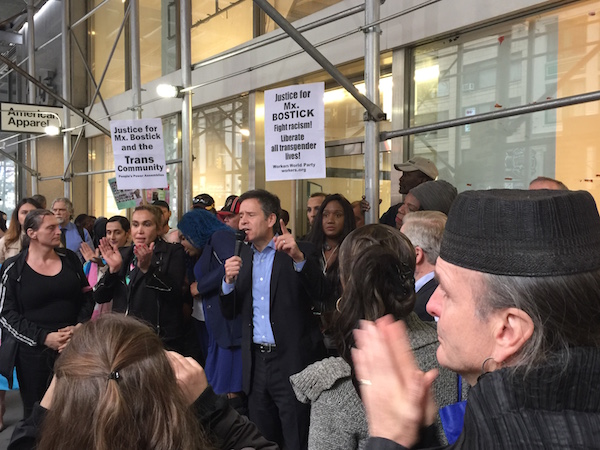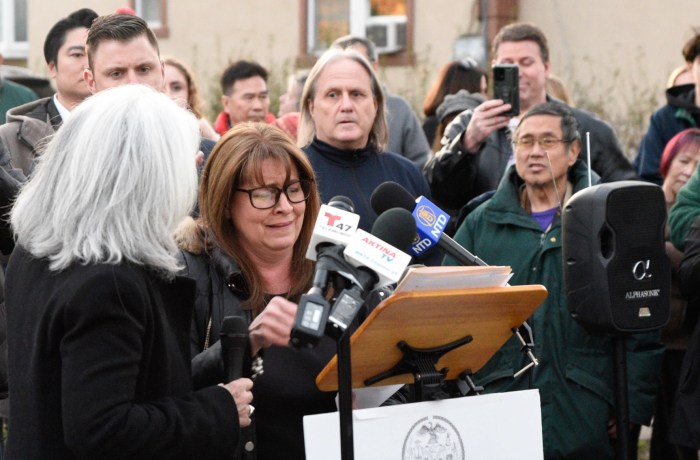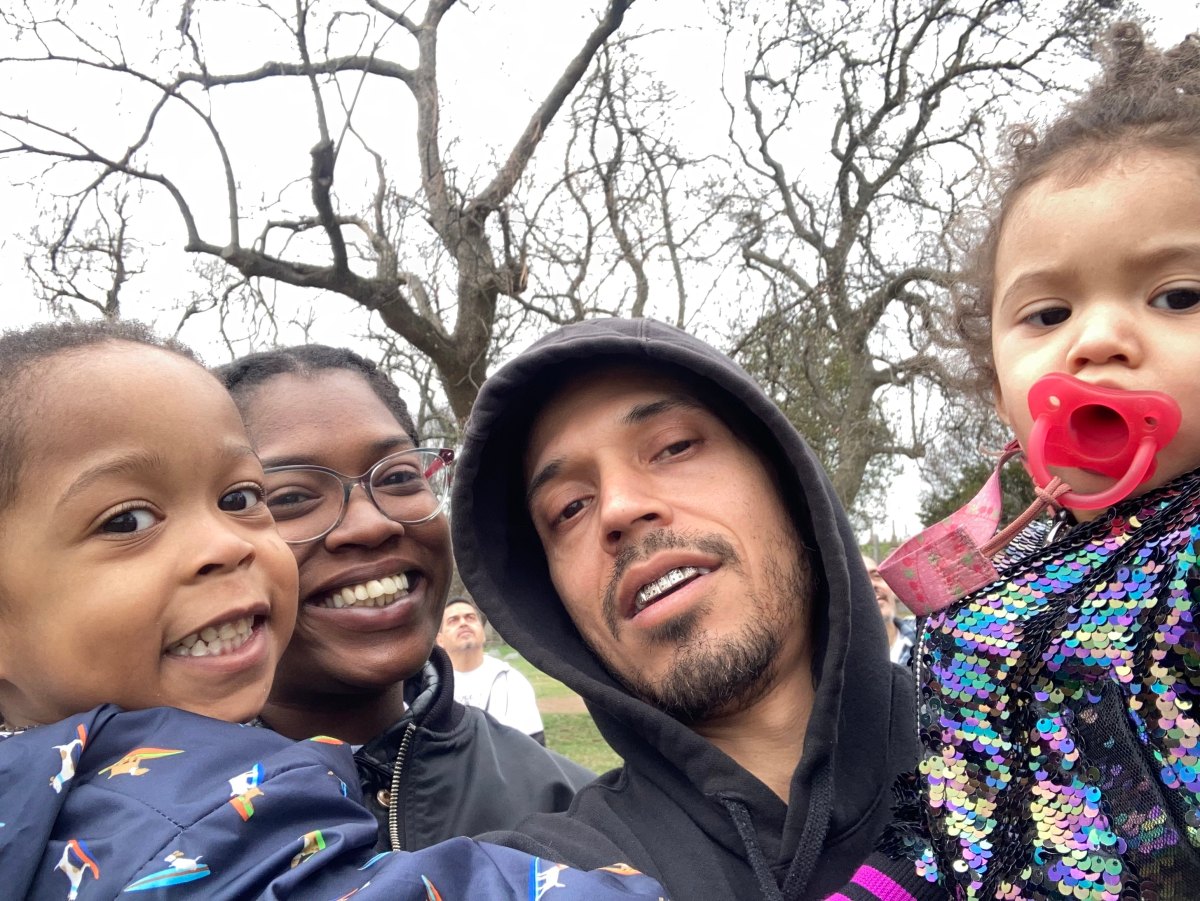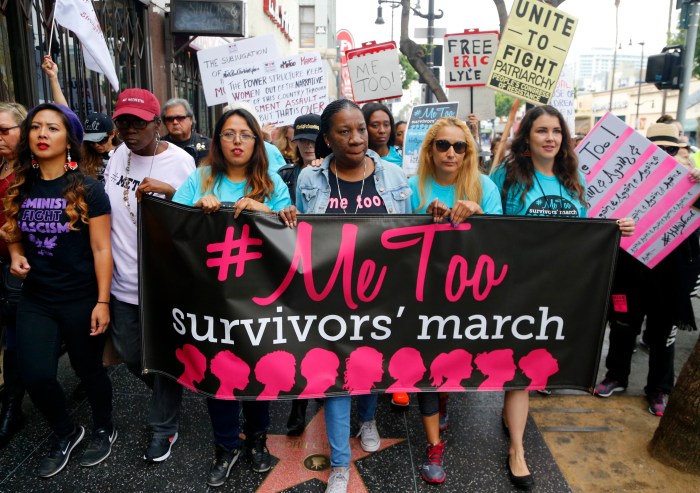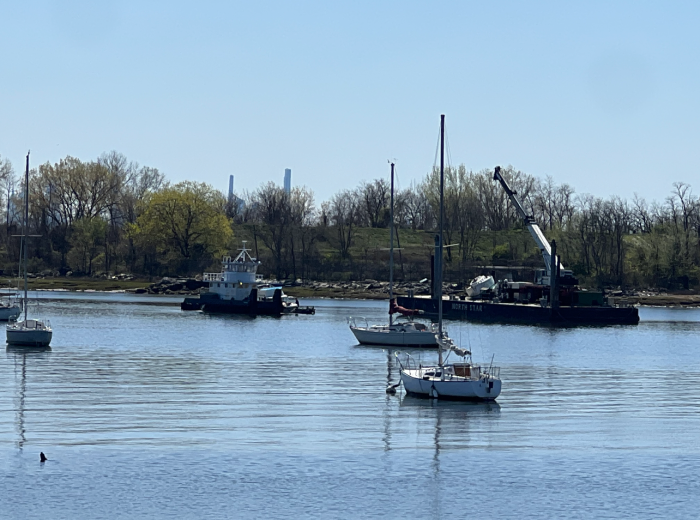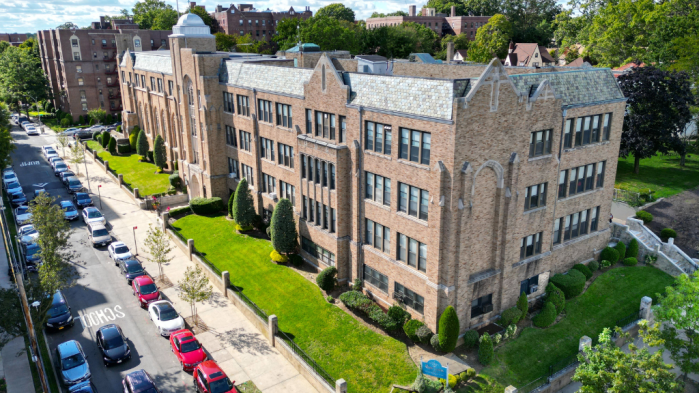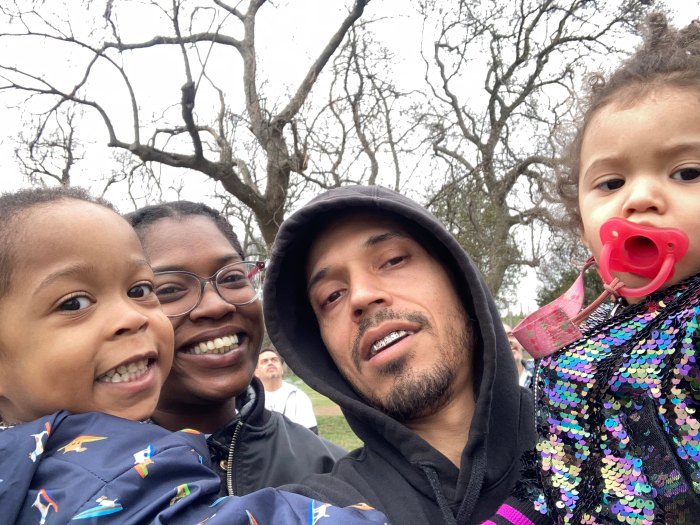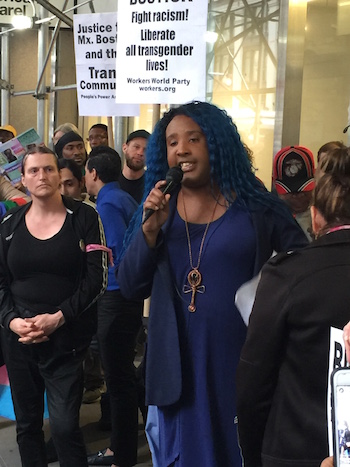
BY PAUL SCHINDLER | Eight days after the Thurs., May 4 death of Mx Bostick, a transgender Chelsea resident who suffered a blow to the head on Tues., April 25, more than 100 transgender New Yorkers and their allies gathered at the site of the crime to honor Bostick’s memory and demand action on issues from police responsiveness to jobs, housing, and media portrayals.
Bostick was attacked with a blunt blow to their head at about 10:30 p.m. on Tues., April 25 on Seventh Ave. (btw. W. 29th & 30th Sts.). Early last week, Gay City News (our sister publication) learned that prosecutors from the Manhattan District Attorney’s office are expected to charge a 26-year-old homeless man, Joseph Griffin, in Bostick’s killing. Shortly after Bostick was taken to Bellevue, Griffin was arrested on a felony criminal mischief complaint of jumping onto the hood of a taxi near 352 Seventh Ave., across the street from where the victim was found, and smashing in its windshield.
The vigil for Bostick was held at 6 p.m. on Fri., May 12, on the block of Seventh Ave. where Bostick was felled. The rally, facilitated by LaLa Zannell, the lead organizer at the New York City Anti-Violence Project, and Cecilia Gentili, the assistant director of policy at Gay Men’s Health Crisis, emphasized the theme “Black Trans Lives Matter.” The vigil was the second gathering of the day to honor Bostick, with another event held at the Brooklyn Community Pride Center.
Mariah Lopez Ebony, who heads STARR, or Strategic Transgender Alliance for Radical Reform, a group founded by the late Sylvia Rivera and Marsha P. Johnson, focused on the housing crisis facing the transgender community.
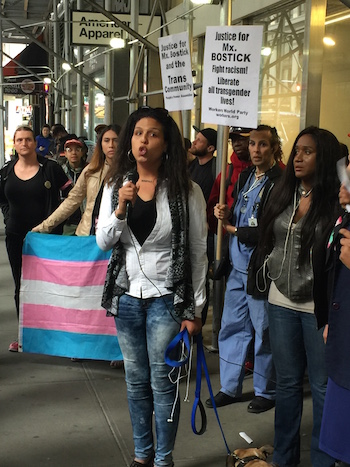
“The issue is not the NYPD but the Department of Homeless Services,” said Lopez Ebony, who herself had spent the day in court trying to gain access to Marsha’s House, which provides shelter to LGBTQ people in the 20s. Bostick’s last known address was the Bowery Residents’ Committee shelter at 127 W. 25th St. (btw. Sixth & Seventh Aves.; brc.org), where Griffin, the suspect in her killing, is said to also have once been a tenant.
The NYPD is describing Bostick’s killing not as a hate crime but rather as a “dispute between neighbors.”
Chelsea State Assemblymember Dick Gottfried, who has led the Gender Expression Non-Discrimination Act (GENDA) to victory 10 times in the Assembly, only to see it stalled in the Republican Senate, told the crowd that whether or not the killing was a hate crime, Bostick would not find themself in the vulnerable position they were on the night of the killing if they were a straight, cisgender, middle class or upper middle class Chelsea resident.
Tabytha Gonzalez, a staff member at the Transgender Legal Defense and Education Fund (transgenderlegal.org), emphasized the significance of employment discrimination in marginalizing transgender lives. Gonzalez, alluding to the ambiguity in how Bostick’s gender identity has been discussed, also said, “It’s not about a label. It’s about a life.”
Earlier on May 12, Pony Knowles, the national engagement manager at Services and Advocacy for GLBT Elders (SAGE), told Gay City News that SAGE and the Anti-Violence Project had convened a meeting of transgender leaders to discuss how best to describe Bostick’s gender identity in honoring them. The best information people at the meeting had was that Bostick alternately identified as Brenda and Kenneth.
“We cannot know this person’s gender identity,” Knowles said.
“The only person who can really tell us had their voice extinguished by this crime… Using both names would… be appropriate. But using just Kenneth or Brenda wouldn’t be.”
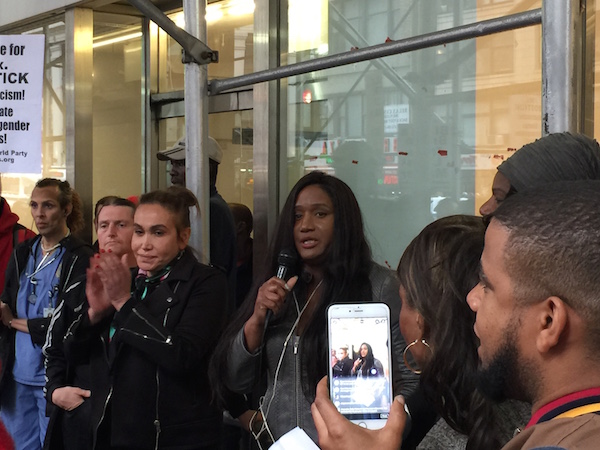
A friend of Bostick’s was at the rally but too upset to speak to the crowd or the media. That friend was said to have been told by Bostick, “You know the Met Life Building… Well, some people call it the Pan Am Building. Some people call me the Met Building, some people call me the Pan Am Building. But I’m still that big and I’m still standing.”
Elizabeth Rivera, an HIV specialist at the Latino Commission on AIDS, focused her anger on both the NYPD and the media.
“We found out about this attack a week later,” she said. “We found out about this attack only after they died.”
Turning to media representations of trans lives, Rivera added, “I hold you responsible for the stigma that continues.”
Michael Adams, the executive director of SAGE, whose offices one block below the site of the crime hosted the mourners at the conclusion of the vigil, noted the proximity of his organization to the crime site and the role Chelsea plays in the life of LGBTQ New Yorkers, saying, “Some one was murdered in our home on holy ground.”
Out gay West Side State Senator Brad Hoylman, who is stymied in his efforts to win approval of GENDA by the implacable opposition of Republicans who control the Senate, said, “Our hearts are breaking. Our hearts are despondent in the heart of Chelsea.
